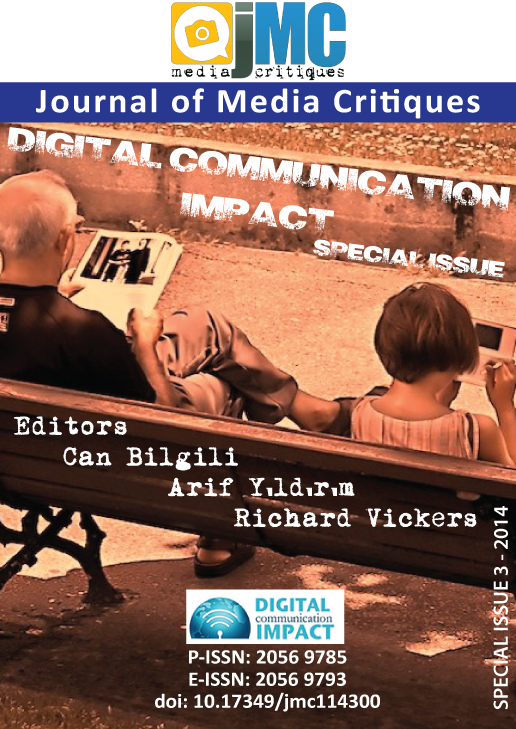EVALUATION OF BLOCKING ACCESS TO TWITTER AND YOUTUBE WITH REGARD TO THE COUNTRY’S REPUTATION
EVALUATION OF BLOCKING ACCESS TO TWITTER AND YOUTUBE WITH REGARD TO THE COUNTRY’S REPUTATION
Author(s): Meltem BostanciSubject(s): Media studies, Regional Geography, Politics and communication, Politics and society, Theory of Communication, Evaluation research, Social Informatics, ICT Information and Communications Technologies, Sociology of Politics
Published by: University of Lincoln and World Experience Campus Foundation
Keywords: Internet; censor; reputation; reputation management; image; loss of image; foreign press; French press;
Summary/Abstract: Reputation of states is an important issue in the international arena. Especially today, since individuals and societies also have a say regarding foreign politics, reputation of a country before the international community has become an important variable. In consideration of the Turkish foreign politics under the Justice and Development Party (AKP), it is not hard to see that actually this period has been the period when the most important steps regarding soft power and public diplomacy were taken. However, despite all these efforts, the government’s designation of rather authoritarian methods can be interpreted as concessions regarding foreign policy and the country’s reputation in the international arena for the sake of domestic politics. Primarily the pressure of the AKP government on the traditional media channels and then the pressures on the social media and the internet, which comprise the subject of this study and have recently been intensely witnessed, are among the touchstones of such authoritarianization. In this study, reflections of the Twitter and YouTube ban of the AKP government in late March 2014 on the French press have been analyzed. As is known, access to Twitter was banned on March 21, 2014 and following that, to YouTube on March 27, 2014, then access to both was restored in the following days as a result of the appeals to the courts. However, the said bans were perceived as direct intervention in personal rights and freedoms both domestically and internationally during this period, and the AKP government in particular has left deep marks with respect to Turkey’s reputation.
Journal: Journal of Media Critiques
- Issue Year: 1/2014
- Issue No: Special
- Page Range: 195-210
- Page Count: 16
- Language: English

